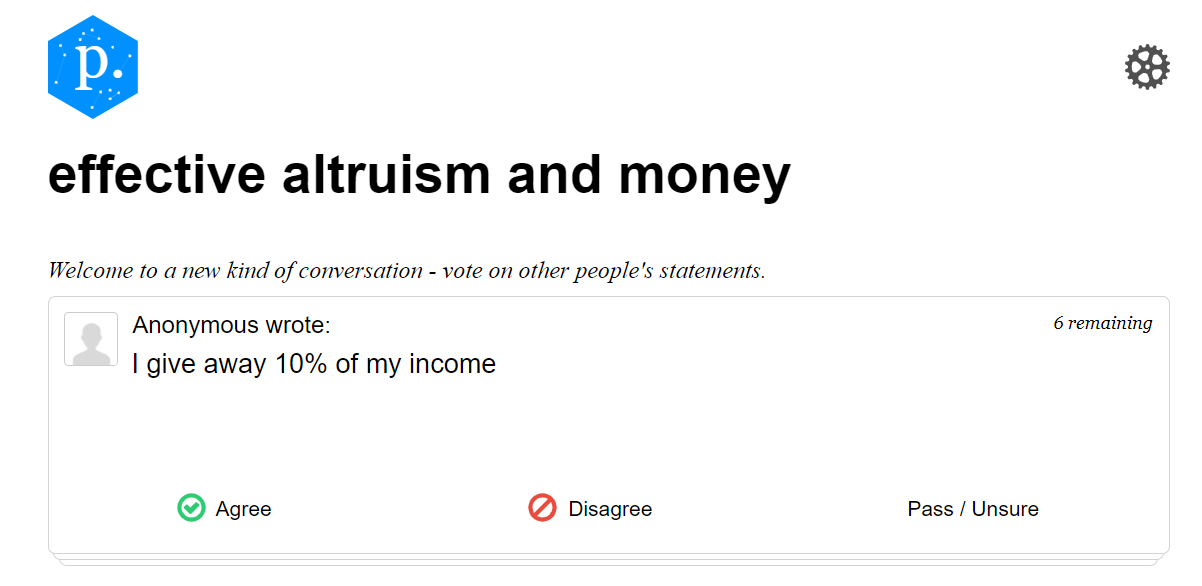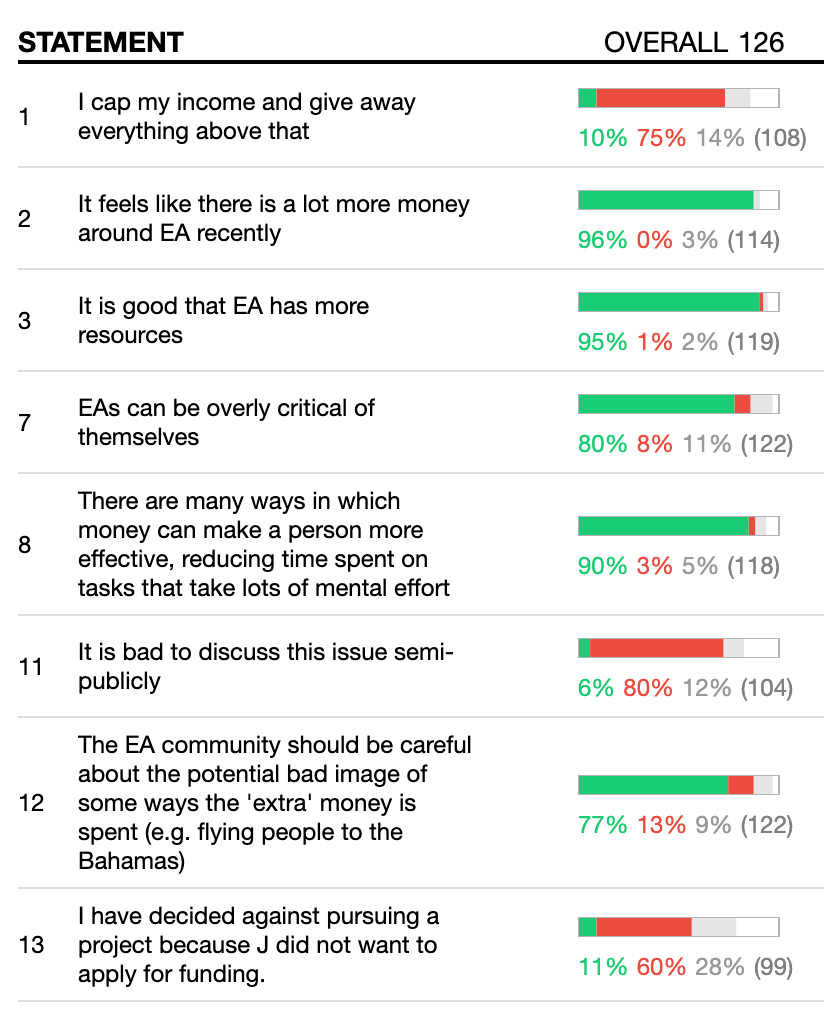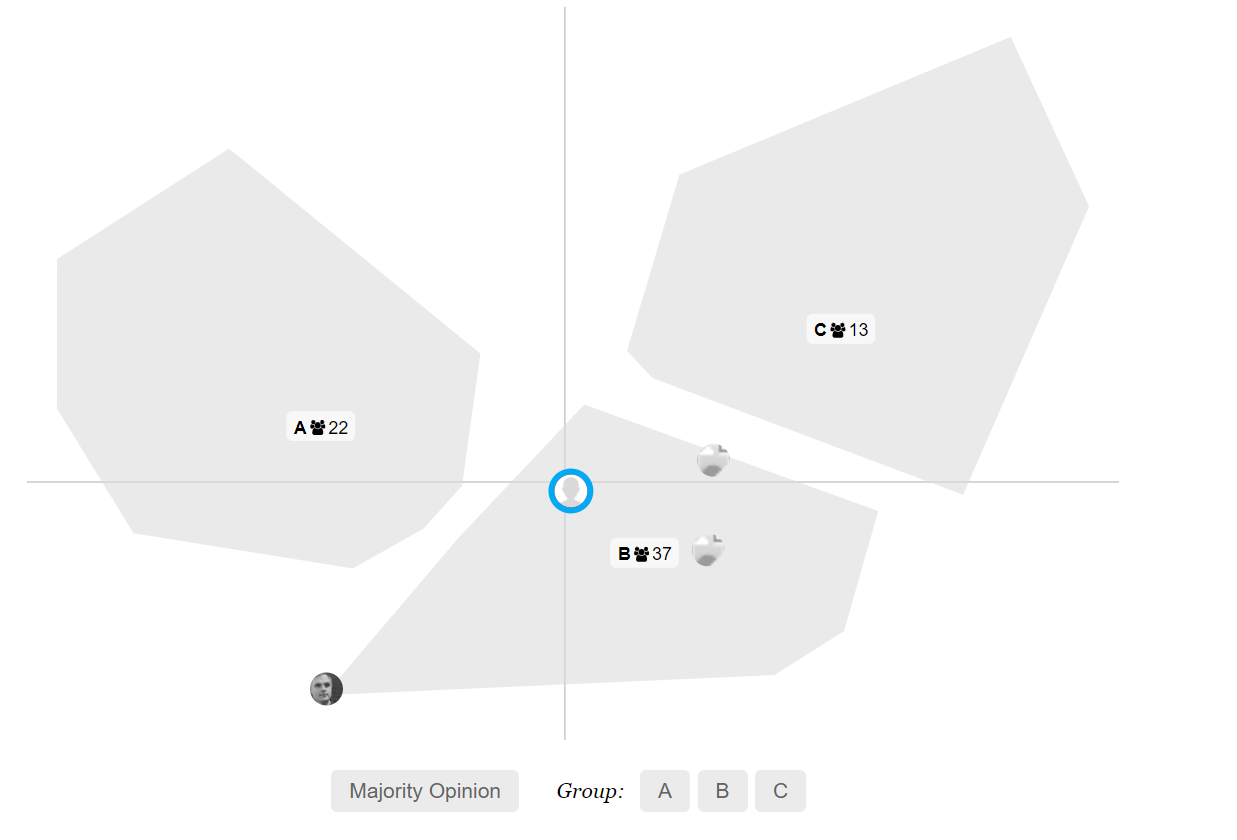Let's talk about the sharp increase in EA funding. I feel anxious about it. I don't think most of my feelings here are rational, but they do affect my actions, so it would be irrational not to take them seriously.
Some thoughts (roughly ordered from general to personal):
- More money is good. It means we have more resources to work on the world's most pressing problems. Yay
- I have seen little evidence that FTX Future Fund (FFF) or EA Infrastructure Fund (EAIF) have lowered their standards for mainline grants
- Several people have gotten in touch with me about regranting money and it seems it would be easier for the median EA to get say $10,000 in funding than it was a year ago. It's possible that this change is more to do with me than FFF though. And also, perhaps this is a good thing. I think it's positive EV to help well aligned people with finance to help them work on important projects faster.
- I'm really really really really grateful to EA Billionaries (in this case Sam Bankman-Fried) for working hard, taking risks and giving away money. I want to both express thanks and also say that working out how do deal with money as a community is important, reasonable work
- The joke "sign up to FTX Funds, I guess" is probably a bad meme. eg "I'm thinking of trying to learn to rollerblade" "sign up to FTX Future Fund?" suggests that FFF has a very low standard for entry. It is a good joke, but I don't think a helpful one.
- Perhaps my anxiety is that I feel like an imposter around large amounts of money - "you can't fund my project, I'm just me". As Aveek said on twitter, sometimes I feel "I wouldn't trust the funding strategy of any organisation that is willing to fund me". This is false, but sometimes I believe it, maybe you do to?
- Perhaps this anxiety is that I worry about EA being seen to be full of grifters. Like the person who is the wealthiest on their street, I don't want bad press from people saying "EAs are spendthrift". I don't think we are, but there is a part of the movement that does get paid more and spend more than many charity workers. I don't know what to do about this.
- My inner Stefan Shubert says "EA is doing well and this is a good thing, don't be so hard on yourself" and I do think there is a chance that this is unnecessary pessimism
- I talk about it on twitter here. I don't mind that I did this, but I think the forum is generally a better place to have the discussion than twitter. Happy to take criticism
- I have hang-ups about money in general. For several years after university I lived on about $12k a year (which is low by UK standards, though high by world ones). It's pretty surreal to be able to even consider applying for say 5x this as a salary. It's like going to a fancy restaurant for the first time ("the waiters bring the food to the table?") I just can't shake how surreal this all is.
- I think it's good to surface and discuss this but I'm open to the idea that it isn't and will blow over.
I've made a Polis poll here if you want to see how different views cluster





Overall I like your post and think there's something to be said for reminding people that they have power; and in this case, the power is to probe at the sources of their anxiety and reveal ground-truth. But there is something unrealistic, I think, about placing the burden on the individual with such anxiety; particularly because answering questions about whether Funder X is lowering / raising the bar too much requires in-depth insider knowledge which - understandably - people working for Funder X might not want to reveal for a number of reasons, such as:
I'm also just a bit averse, from experience, of replying to people's anxieties with "solve it yourself". I was on a graduate scheme where pretty much every response to an issue raised - often really systemic, challenging issues which people haven't been able to solve for years, or could be close to whistle-blowing issues - was pretty much "well how can you tackle this?"* The takeaway mesage then feels something like "I'm a failure if I can't see the way out of this, even if this is really hard, because this smart more experienced person has told me it's on me". But lots of these systemic issues do not have an easy solution, or taking steps towards action are either emotionally / intellectually hard or frankly could be personally costly.
From experience, this kind of response can be empowering, but it can also inculcate a feeling of desperation when clever and can-do attitude people (like most EAs) are advised to solve something without support or guidance, especially when this is near intractable. I'm not saying this is what the response of 'research it yourself' is - in fact, you very much gave guidance - but I think the response was not sufficiently mindful of the barriers to doing this. Specifically, I think it would be really difficult for a small group of capable people to research this a priori, unless there were other inputs and support like e.g. significant cooperation from Funder X they're looking to scrutinise, or advice from other people / orgs who've done this work. Sometimes that is available, but it isn't always and I'd argue it's kind of a condition for success / not getting burned out trying to get answers on the issue that's been worrying you.
Side-note: I've deliberately tried to make this commentary funder neutral because I'm not sure how helpful the focus on FTx is. In fairness to them, they may be planning to publish their processes / invite critique (or have done so in private?), or are planning to take forward rigorous evaluation of their grants like GiveWell did? So would rather frame this as an invitation to comment if they haven't already, because it felt like the assumptions throughout this thread are "they ain't doing zilch about this" which might not be the case.
*EDIT: In fact, sometimes a more appropriate response would have been "yes, this is a really big challenge you've encountered and I'm sorry you feel so hopeless over it - but the feeling reflects the magnitude of the challenge". I wonder if that's something relevant to the EA community as well; that aspects of moral uncertainty / uncertainty about whether what we're doing is impactful or not is just tough, and it's ok to sit with that feeling.